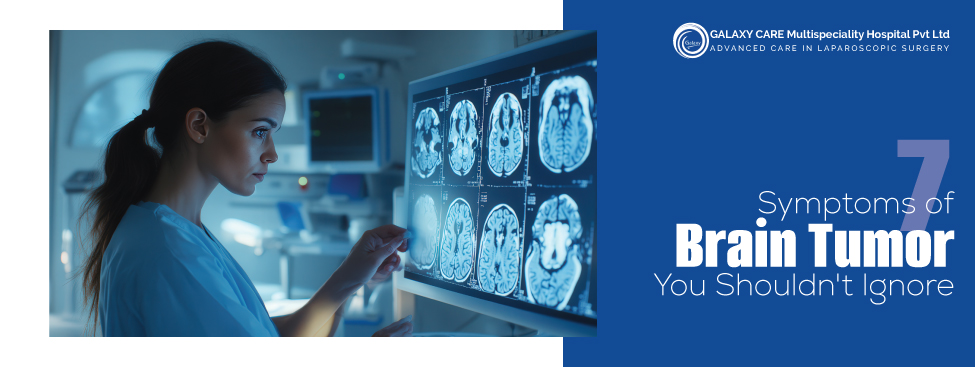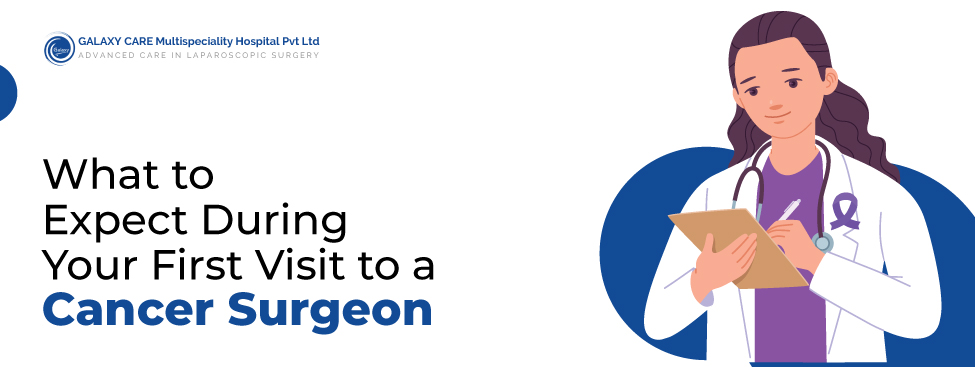
7 Symptoms of Brain Tumor You Shouldn’t Ignore
Have you ever considered how subtle changes in your health could indicate something serious? When it comes to brain health, certain symptoms may appear minor but could signal the presence of a brain tumor. According to various studies, approximately 40,000-50,000 new cases of brain tumors are reported annually in India.
While brain tumors being malignant aren’t always common, understanding their early signs is critical for timely diagnosis and treatment. Recognizing these symptoms early can significantly improve treatment outcomes and pave the way toward recovery. So, what are the top symptoms of Brain Tumor you should never ignore? Let’s explore them in detail.
Top 7 Symptoms of a Brain Tumor
1. Persistent Headaches
If you’re experiencing headaches that are frequent, severe, and out of the ordinary, it could be an indication of a brain tumor. These headaches often worsen in the morning or after a coughing or sneezing episode. They may not always feel like typical migraines and don’t respond well to over-the-counter pain medications.
Why it happens: A tumor can exert pressure on the surrounding brain tissues, spinal fluid, or blood vessels, leading to increased intracranial pressure. This pressure is what causes these recurring and intense headaches.
If you or a loved one is struggling with such symptoms, it’s crucial to consult a professional immediately. A Cancer Specialist in Pune can evaluate these signs with advanced diagnostic tools to detect underlying conditions promptly.
2. Seizures
A sudden onset of seizures in someone with no prior history is an alarming sign. Seizures caused by brain tumors can range from mild twitching in one part of the body to severe convulsions. Uncontrolled electrical activity in the brain due to the tumor’s interference can result in these episodes.
Types of seizures in brain tumor patients:
- Focal seizures: Affecting only one area of the brain and causing localized symptoms like hand or face twitching.
- Generalized seizures: Resulting in full-body convulsions and loss of consciousness.
Seizures, even one-off incidents, should never be taken lightly. If they occur for the first time, schedule a consultation as soon as you can.
3. Changes in Vision
Blurred vision, double vision, or partial vision loss can often be linked to brain tumors, especially those located near the occipital lobe or the optic nerves. Many dismiss such symptoms as minor eye issues or stress, but they might indicate significant neurological damage.
Key visual changes to monitor:
- Difficulty seeing objects clearly from a distance.
- Loss of peripheral vision, often described as “tunnel vision.”
- Unexplained episodes of flashes of light or sudden eye pain.
A comprehensive evaluation, often by a neurologist or a Cancer Specialist in Pune, can help identify if these visual irregularities are due to a brain tumor or a different condition.
4. Cognitive Difficulties
Another early warning sign of a brain tumor could be unusually frequent memory lapses or an inability to focus. You might start forgetting things, losing train of thought mid-conversation, or struggling to perform simple tasks.
Additional signs:
- Confusion in ordinary situations.
- Difficulty organizing thoughts or expressing them coherently.
- Noticeable behavioral or personality changes.
These symptoms arise when the tumor starts pressing against or damaging the areas of the brain responsible for memory and decision-making. If someone close to you starts exhibiting cognitive changes without a clear cause, encourage them to seek immediate medical attention.
5. Nausea and Vomiting
Unexplained nausea and vomiting, especially when not connected to digestive issues, can also signify a potential brain tumor. These symptoms tend to occur in the morning and are often accompanied by other signs like fatigue, headaches, or dizziness.
Why this happens: As intracranial pressure increases due to the tumor, it affects the part of the brain responsible for controlling nausea and vomiting reflexes.
Though nausea may seem like a non-specific symptom, when it is persistent and unexplained, it’s necessary to look deeper into the root cause with professionals experienced in neuro-oncology.
6. Weakness or Numbness
A brain tumor can cause weakness, numbness, or tingling sensations in the limbs or face. This is because tumors disrupt the normal communication pathways within the brain. For example, you might have trouble lifting objects, experience slight paralysis on one side of your body, or feel a constant “pins and needles” sensation.
Common patterns:
- Weakness on one side of the body (hemiparesis).
- Drooping of one side of the face mimicking symptoms of a stroke.
- Loss of coordination or balance, making simple tasks like walking difficult.
It’s critical to consult a healthcare expert if these issues persist or worsen over time.
7. Difficulty with Speech or Hearing
Slurred speech, mispronunciations, or struggling to find the right words might not just be slips of the tongue. Similarly, difficulty processing auditory information, like not hearing clearly in one ear or frequently asking people to repeat sentences, could point toward auditory nerve involvement due to a tumor.
Why it happens: The brain regions responsible for language comprehension, motor speech, and hearing can be impaired due to tumors exerting pressure or growing in these critical areas.
Communication difficulties are often noticeable to friends or family members before they are acknowledged by the person affected, making it vital to raise concerns without delay.
Early Diagnosis Matters
The symptoms listed above can occur individually or as a combination. While it’s important not to immediately jump to conclusions, such complaints should never be ignored. The key takeaway? Early diagnosis and treatment can significantly impact patient recovery and survival rates.
Over the years, medical advancements have made it possible to detect these symptoms sooner and treat brain tumors more effectively. Technologies like MRI, PET scans, and CT scans, along with laparoscopic assistance, have been game-changers in diagnosing and managing tumors.
Proactive Brain Tumor Treatment is the Key!
Your health is your most precious asset. Even seemingly minor symptoms like recurring headaches or cognitive lapses deserve attention, especially when they persist or worsen. Recognizing the signs of a brain tumor early can make all the difference in your treatment journey and prognosis.
At Galaxy Care Hospital, your well-being is our mission. With advanced technologies, skilled brain cancer specialists in Pune, and care crafted to perfection, we proudly lead as the best cancer hospital in Pune. Don’t let hesitation delay your health evaluation. Choose Galaxy Care Hospital for unparalleled expertise and compassionate cancer care.
Your health matters—starting today could save tomorrow. Reach out to us for a consultation and take the first step toward recovery and hope.


